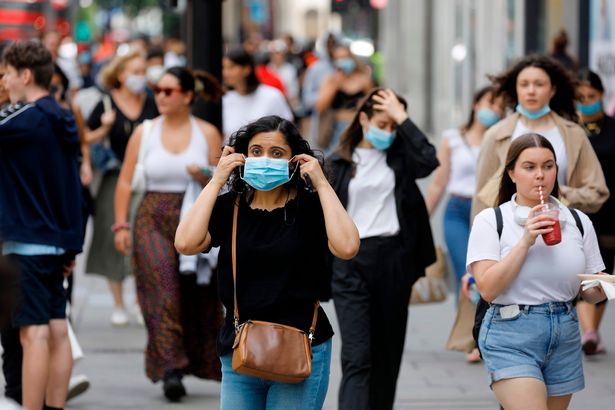Does your skin get soggy if you’ve been wearing a mask for any length of time? Mine does, but for most people it’s only a minor discomfort.
Spare a thought then for people who already have a skin condition and for whom wearing a mask brings out more than a rash but who still want to continue wearing one.
The term maskne is a portmanteau, combining mask and acne, and has become increasingly popular during the pandemic where it’s used to describe not only acne but many other skin conditions caused by masks.
So far, the commonest mask-related skin conditions are acne and irritant contact dermatitis. Mask wearing can cause new facial eruptions or flare-ups of pre-existing ones.
The cause of mask-related acne is threefold, say Emily Rudd and Sarah Walsh of King’s College Hospital.
First there’s a humid microclimate inside the mask, then the lips and mouth can be colonised by bacteria which could spill on to the surrounding damp skin. A third element is friction from a close-fitting mask which causes chronic irritation.
It’s possible to manage mask wearing to alleviate or improve the skin problem. For example, allergic contact dermatitis should improve with a period of no mask wearing, while acne, once established, may not respond so readily. But it’s a good idea to take mask breaks when they’re removed entirely.
If maskne is related to an existing skin condition such as lupus, irritant contact dermatitis, atopic eczema, allergic contact dermatitis, urticaria (hives), seborrheic dermatitis and psoriasis it will be on characteristic areas of the face. So what can you do to ameliorate the effects of wearing a mask? Here are a few tips…
- Use a gentle soap-free cleanser
- Apply a light moisturiser at least 30 minutes before applying a mask
- Put silicon-based barrier tape on the nasal bridge and cheeks
- Wipe skin under masks with a silicon-based barrier wipe
- Take regular breaks from wearing the mask
- Drink plentifully
- Maintain oral hygiene (teeth brushing twice daily and daily interdental flossing/brushing)
And what could help your maskne? Retinoids such as adapalene cream alone or in combination with benzoyl peroxide cream once daily is good for mild cases, with the addition of an oral tetracycline such as lymecycline once daily for up to 12 weeks for moderate to severe cases.
Your doctor will help you decide.

